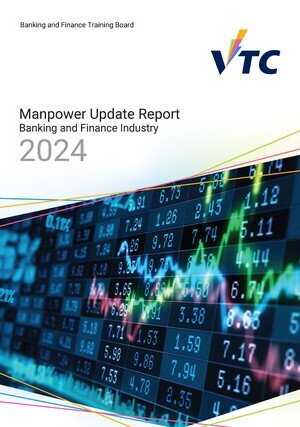Year 2025 Tooltips
Employees
Managerial
0
Supervisory/ Officer
0
Clerical
0
Other Supporting Staff
0
Total
0
Managerial
0
Vacancy rate: 1.8%
Supervisory/ Officer
0
Vacancy rate: 2.0%
Clerical
0
Vacancy rate: 1.7%
Other Supporting Staff
0
Vacancy rate: 1.6%
Total
0
Vacancy rate: 1.8%
All the percentages are rounded to nearest 0.1%.
Managerial
0
Turnover rate: 6.6%
Supervisory/ Officer
0
Turnover rate: 7.7%
Clerical
0
Turnover rate: 9.9%
All the percentages are rounded to nearest 0.1%.
Monthly Income Tooltips
2025
2021
Note(s):
The figures did not include other supporting staff.
All the percentages are rounded to nearest 0.1%.
Monthly Income Tooltips
2025
2021
Note(s):
The figures did not include other supporting staff.
All the percentages are rounded to nearest 0.1%.
Monthly Income Tooltips
2025
2021
Note(s):
(1) The figures did not include other supporting staff.
(2) Other financial sectors referred to Investment & holding companies, Finance leasing, personal loan, mortgage, instalment credit and other credit granting, Commodity futures & precious metals brokers / dealers, Stock, bullion & commodity exchange and Public administration, Money changers & foreign exchange brokers/dealers, Financial institutions & financial services, n.e.c.
All the percentages are rounded to nearest 0.1%.
Preferred Education Tooltips
All the percentages are rounded to nearest 0.1%.
All the percentages are rounded to nearest 0.1%.
Preferred Education Tooltips
All the percentages are rounded to nearest 0.1%.
All the percentages are rounded to nearest 0.1%.
Preferred Education Tooltips
Note(s):
Other financial sectors referred to Investment & holding companies, Finance leasing, personal loan, mortgage, instalment credit and other credit granting, Commodity futures & precious metals brokers / dealers, Stock, bullion & commodity exchange and Public administration, Money changers & foreign exchange brokers/dealers, Financial institutions & financial services, n.e.c.
All the percentages are rounded to nearest 0.1%.
Note(s):
Other financial sectors referred to Investment & holding companies, Finance leasing, personal loan, mortgage, instalment credit and other credit granting, Commodity futures & precious metals brokers / dealers, Stock, bullion & commodity exchange and Public administration, Money changers & foreign exchange brokers/dealers, Financial institutions & financial services, n.e.c.
All the percentages are rounded to nearest 0.1%.
Recruitment Difficulties
1st
Lack of candidates with relevant experience and training
2nd
Working conditions/ remuneration package could not meet recruits' expectation
3rd
General labour shortage in Hong Kong
Recruitment Difficulties
1st
Lack of candidates with relevant experience and training
2nd
Lack of candidates
3rd
Working conditions/ remuneration package could not meet recruits' expectation
Recruitment Difficulties
1st
Lack of candidates with relevant experience and training
2nd
Working conditions/ remuneration package could not meet recruits' expectation
3rd
Lack of candidates
Note(s):
Other financial sectors referred to Investment & holding companies, Finance leasing, personal loan, mortgage, instalment credit and other credit granting, Commodity futures & precious metals brokers / dealers, Stock, bullion & commodity exchange and Public administration, Money changers & foreign exchange brokers/dealers, Financial institutions & financial services, n.e.c.
Manpower Demand
Average Annual Growth
0
2025
Actual
0
2029
Forecast
0
Note(s):
(1) The figures included full-time employees and full-time vacancies.
(2) The figures did not include other supporting staff.
(3) The manpower forecast is based on the statistical modelling of relevant economic indicators which reflect important changes in the local economy, demography and labour market.
All the percentages are rounded to nearest 0.1%.
Report

- Banking and Finance
- 2025 Manpower Survey Report
Evolving Skills and Manpower Demand in Hong Kong’s Banking and Finance Industry
Hong Kong is a leading international financial centre undergoing rapid transformation driven by digitalisation, regulatory developments and deeper integration with national strategies. This Manpower Survey Report examines evolving talent needs in the banking and financial industry, identifies emerging skills in areas such as cross‑border finance, digital assets, data analytics and financial technology, and assesses potential skills gaps. It also provides targeted recommendations for the Government, industry and education providers to support manpower planning, talent development and workforce readiness, ensuring the industry remains competitive and future‑ready.

- Banking and Finance
- 2024 Manpower Update Report
The Banking and Finance Industry: Navigating Through Change and Challenges
Hong Kong's banking and finance industry stands at a critical juncture of transformation. While the industry maintains its position as one of the leading international financial centres, it faces some challenges in adapting to rapid changes in the global financial landscape. Major influences shaping the industry include economic cycles, persistent talent shortages, evolving government policies, and accelerating technological advancement. The industry particularly struggles to meet growing demands for specialised talents in emerging areas such as fintech, ESG, analytics, wealth management, and risk management. Beyond immediate talent needs, the industry must address fundamental challenges in digital capabilities development, cross-functional compliance integration, and Greater Bay Area expertise. This report examines these challenges and presents strategic recommendations to facilitate digital and sustainable transition, strengthen employer branding for youth attraction, and develop future-ready banking and finance education programmes.



























































